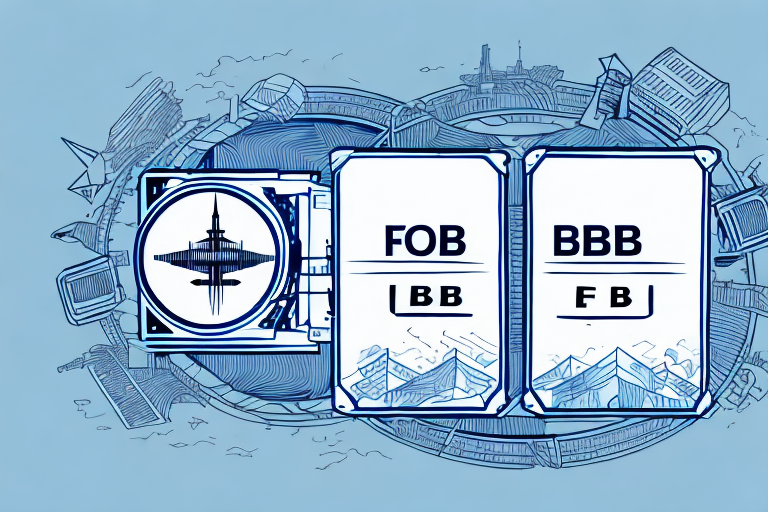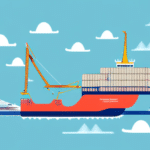Understanding the Benefits of FOB Origin Shipping
If you're in the business of importing or exporting goods, you've likely come across the term "FOB origin shipping." This shipping method is gaining popularity as more companies seek ways to streamline their processes and reduce costs. In this article, we'll provide an in-depth analysis of FOB origin shipping, including its definition, operation, and the numerous advantages it offers.
What is FOB Origin Shipping?
FOB origin shipping refers to a method where the buyer assumes responsibility for the goods as soon as they leave the seller's warehouse or facility. In this arrangement, the seller is only responsible for loading the goods onto the transport vehicle and arranging their transportation to the designated destination. Once the goods depart the seller's facility, the buyer assumes full responsibility, including any risks or damages that may occur during transit.
FOB stands for "Free On Board," indicating that the seller's responsibility ends once the goods are loaded onto the transport vehicle. This shipping method contrasts with FOB destination shipping, where the seller remains responsible until the goods reach the buyer's designated location.
FOB origin shipping is commonly used in international trade, providing buyers with greater control over transportation and logistics once the goods leave the seller's facility. It's crucial for both parties to clearly understand the shipping agreement terms and ensure all necessary documentation and insurance are in place to protect the goods during transit.
How FOB Origin Shipping Works
In FOB origin shipping, the seller handles the loading of goods onto the transport vehicle destined for the buyer. The buyer is responsible for arranging the shipment and covering all associated expenses, including transportation costs, customs fees, and taxes. Once the goods leave the seller's facility, the buyer assumes full responsibility for the shipment, including any risks or damages that may occur during transit.
The buyer must also arrange for any necessary insurance coverage to protect the shipment during transit. This method contrasts with FOB destination shipping, where the seller maintains responsibility until the goods arrive at the buyer's location, thus covering damages or losses that occur during transit.
Advantages of FOB Origin Shipping for Importers
FOB origin shipping offers several advantages for importers:
- Cost Savings: Importers have more control over the shipping process and can negotiate directly with carriers to secure the best rates, potentially lowering overall shipping costs.
- Increased Control: Importers can choose the most efficient transportation methods and routes, ensuring timely delivery and reducing the risk of delays.
- Supply Chain Efficiency: By managing the shipping process, importers can better align shipments with just-in-time inventory systems or tight production schedules, enhancing overall supply chain efficiency.
- Enhanced Visibility: Importers can closely monitor their shipments, providing greater visibility into the supply chain and enabling quick responses to any issues that arise.
According to the 2023 Supply Chain Management Report, companies utilizing FOB origin shipping experienced a 15% reduction in shipping costs and a 20% improvement in delivery times.
Advantages of FOB Origin Shipping for Exporters
Exporters also benefit from FOB origin shipping in several ways:
- Cost Control: Exporters can avoid the expenses associated with arranging transportation and paying related fees, as these responsibilities fall on the buyer.
- Risk Minimization: Exporters transfer the risk of loss or damage during transit to the buyer once the goods leave their facility, reducing potential liabilities.
- Flexibility in Logistics: Exporters have the freedom to select carriers and transportation modes that best suit their needs and budget, ensuring efficient and cost-effective shipping.
Cost Savings with FOB Origin Shipping
One of the primary advantages of FOB origin shipping is cost savings. By allowing the buyer to arrange transportation and negotiate directly with carriers, both importers and exporters can achieve more competitive shipping rates. This direct negotiation can lead to significant savings, especially for businesses that ship large volumes of goods.
Additionally, FOB origin shipping helps reduce the risk of damage or loss during transit. Buyers can choose carriers with strong safety records and reliable delivery performance, minimizing the likelihood of costly claims or customer dissatisfaction.
Increased Control with FOB Origin Shipping
FOB origin shipping provides buyers with increased control over the shipping process. By managing transportation arrangements, buyers can:
- Select preferred carriers based on reliability and cost-effectiveness.
- Choose optimal transportation methods and routes to ensure timely delivery.
- Implement tailored packaging solutions to protect goods during transit.
This level of control not only enhances the efficiency of the shipping process but also contributes to better customer satisfaction through more reliable delivery schedules.
Risks and Limitations of FOB Origin Shipping
While FOB origin shipping offers numerous benefits, it also comes with certain risks and limitations:
- Buyer Responsibility: Once the goods leave the seller's facility, the buyer is fully responsible for any loss, damage, or theft during transit.
- Complex Coordination: Successful FOB origin shipping requires close coordination between buyers and sellers to ensure all shipping arrangements and payments are handled correctly.
- Insurance Requirements: Buyers must arrange appropriate insurance coverage, which can add to the overall shipping costs.
It's essential for both parties to understand these risks and implement strategies to mitigate them, such as thorough contract agreements and selecting reputable freight forwarders.
How to Choose the Right Freight Forwarder for FOB Origin Shipping
Selecting the right freight forwarder is crucial for the success of FOB origin shipping. Consider the following factors when choosing a freight forwarder:
- Experience and Expertise: Look for a freight forwarder with a proven track record in handling similar shipments and industry-specific knowledge.
- Competitive Rates: Ensure the freight forwarder offers competitive pricing and has the ability to negotiate favorable rates with shipping carriers.
- Comprehensive Services: Choose a freight forwarder that provides additional services such as customs clearance, insurance coverage, and real-time tracking.
- Reputation: Research the freight forwarder's reputation through reviews, testimonials, and industry certifications to ensure reliability and trustworthiness.
For more insights on selecting the best freight forwarder, visit our Freight Forwarder Selection Guide.
Tips for Successful FOB Origin Shipping Operations
To ensure successful FOB origin shipping operations, consider the following tips:
- Choose a Reliable Freight Forwarder: Select a freight forwarder with experience in FOB origin shipping to handle logistics efficiently.
- Establish Clear Communication: Maintain open and consistent communication channels between buyers and sellers to coordinate shipping activities effectively.
- Define Roles and Responsibilities: Clearly outline the roles and responsibilities of each party in the shipping agreement to prevent misunderstandings.
- Negotiate Fair Rates: Work with your freight forwarder to negotiate competitive rates with shipping carriers.
- Arrange Appropriate Insurance: Ensure that adequate insurance coverage is in place to protect the shipment during transit.
- Monitor Shipments: Use tracking tools to monitor the progress of your shipments and address any issues promptly.
Case Studies: Successful Implementation of FOB Origin Shipping
Several companies have successfully implemented FOB origin shipping to optimize their logistics and reduce costs. For instance, a leading electronics manufacturer reduced its shipping expenses by 20% by switching to FOB origin shipping. By negotiating directly with carriers and managing transportation arrangements in-house, the company achieved significant savings and improved delivery times.
Another example involves a global apparel retailer that enhanced its supply chain visibility by adopting FOB origin shipping. This allowed the retailer to better track shipments, respond swiftly to delays, and maintain consistent inventory levels across multiple distribution centers.
Comparison of FOB Origin and CIF Destination Shipping
FOB origin shipping is often compared to CIF (Cost, Insurance, and Freight) destination shipping, another common shipping method. The primary difference lies in who assumes responsibility for the goods during transit:
- FOB Origin Shipping: The buyer assumes full responsibility once the goods leave the seller's facility. The buyer handles transportation, insurance, and any risks associated with transit.
- CIF Destination Shipping: The seller remains responsible until the goods reach the destination port. The seller covers transportation costs, insurance, and risks up to that point.
Choosing between FOB origin and CIF destination shipping depends on factors such as control over logistics, cost considerations, and risk management preferences. For a detailed comparison, refer to our FOB vs. CIF Shipping Guide.
Legal Considerations in FOB Origin Shipping
When implementing FOB origin shipping, it's essential to address several legal considerations:
- Contract Clarity: Ensure that contracts clearly define the responsibilities of both the buyer and seller, including terms related to shipment, payment, and liability.
- Compliance with Regulations: Be aware of and comply with all relevant customs regulations, import/export laws, and international trade agreements.
- Insurance Requirements: Verify that appropriate insurance coverage is in place to protect against potential losses or damages during transit.
- Dispute Resolution: Establish clear procedures for resolving any disputes that may arise related to shipping responsibilities or damages.
Consulting with legal counsel and experienced freight forwarders can help ensure that all legal requirements are met and that your shipping agreements are robust and enforceable.
Future Trends in FOB Origin Shipping
FOB origin shipping is expected to continue its growth as businesses seek greater control and cost-efficiency in their logistics operations. Emerging trends influencing FOB origin shipping include:
- Technology Integration: Advances in logistics technology, such as real-time tracking and automated documentation, are enhancing the efficiency and transparency of FOB origin shipping.
- Sustainability: Companies are increasingly focusing on sustainable shipping practices, opting for eco-friendly transportation modes and optimizing routes to reduce carbon footprints.
- Regulatory Changes: Evolving international trade regulations and compliance requirements may impact how FOB origin shipping is conducted, necessitating adaptability from businesses.
- Global Supply Chain Resilience: The emphasis on building resilient supply chains in response to global disruptions is driving the adoption of flexible shipping methods like FOB origin shipping.
Staying informed about these trends and leveraging new technologies will be crucial for businesses aiming to maintain a competitive edge in the global marketplace.




















